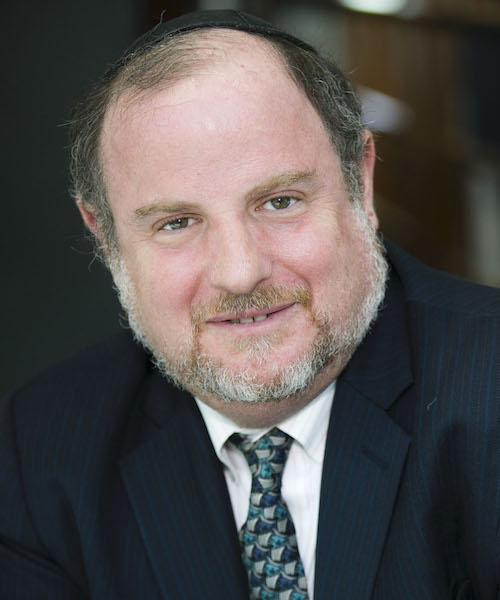The current global pandemic certainly qualifies as an emergency, from both a national and a Jewish perspective. The COVID-19 pandemic has placed the United States on the cusp of a recession (or worse) with high unemployment and a shortage of health care resources as well as many serious disruptions to normal life. Israel entered Passover in a virtual lockdown, with travel more than 100 meters from home restricted by law and restrictions have barely changed since. Jewish life worldwide is unprecedentedly circumscribed: Synagogues, schools, and yeshivot are closed everywhere; weddings are cancelled or attended by Zoom; and Passover was a lonely holiday without family. Furthermore, unlike many other even more desperate situations—like the Crusades or the Holocaust—there is no anti-Semitic origin to the collapse of Jewish life. Jewish life has shut down, to a great extent, because flattening the curve is needed to save lives everywhere.
How to obey Jewish law in such an environment is the topic of a recent volume of responsa published entitled “Jewish Law Decisions Related to Corona” by Rabbi Hershel Schachter. Rabbi Hershel Schachter (b. 1941) is the leading scholar of Jewish law at Yeshiva University and the head of its primary institute for advanced study (kollel, in Hebrew). Widely perceived to be the heir of Rabbi Joseph B. Soloveitchik at Yeshiva University, Rabbi Schachter serves as the final authority of Jewish law at the OU Kosher and is the author of many books on matters of halakha. This work contains 35 responsa on many different areas of Jewish law, both personal and communal.
Rabbi Schachter’s responsa are broad and well sourced, reflecting his role as a leading Jewish law authority in the Modern Orthodox community. This work reflects his role as a communal authority, addressing many different communal topics. Some of them are about celebrating the recently passed holiday of Passover—a family holiday, celebrated this year without synagogue or family—and others are about how to run a community when all the synagogues are closed. Yet others more directly reflect the health risks of COVID-19 (such as how much risk is needed to violate the Sabbath) or what is the minimum number of people needed to attend a Jewish wedding (the customary number was 10, but Rabbi Schachter notes that really only two witnesses and a bride and groom are needed in times of isolation). Yet others address issues related to burial matters, which are abbreviated in the current situation (people can be buried in one place with the plan to move them to another, and burials can take place on Jewish festivals if needed).
Two responsa are worth noting directly in this paper: one deals with triage concerns and advocates for never extubating patients to their detriment even if such saves the life of other (more “worthwhile”) individuals, since the act of extubating is an act of murder, Rabbi Schachter insists. The final letter—entitled “Charity Saves One From Death”—presses members of the community to be generous in their financial dealings with others. It argues that it is an act of charity to be righteous and generous when resolving the financial disputes created by the pandemic, particularly against institutions of value to the community, which might collapse under the weight of such unexpected burdens.
Rabbi Schachter’s responsa are particularly noteworthy for three reasons. First, Rabbi Schachter ends most of his responsa (written in Hebrew, as that is the language of Jewish law) with an English summary aimed at providing guidance to the typical lay member of the Orthodox community; sometimes the English text is as long as the Hebrew. Rabbi Schachter is seeking to guide the laity and the rabbinate, and not just the rabbinic community.
Second, Rabbi Schachter’s responsa frequently focus on communal issues and adopt a more communal approach to questions focusing on the good of the whole. For example, Rabbi Schachter’s view which permits marriage without a quorum of ten present (rather than delaying the marriage) reflects a sense of communal responsibility, rather than a religious ideal.
Third, Rabbi Schachter is more aware of the status of Jews as a minority religion in a complex society and wants to ensure, as much as possible, that the religious practices of the Jewish community do not violate important secular societal norms and attract unfavorable public attention during these difficult times. Consider for example on page 10 of his work, where Rabbi Schachter argues that no burning of chametz (leavened food) should take place, even though the classical custom is to burn chametz. He notes:
"Finally, we must also be careful of the public perception that Jews are going about their business as usual and conducting their affairs in public while the rest of the world is confining themselves to their homes. It could appear as if the Jewish people are not sharing the burden and pain with the rest of humanity because of our religion."
Perhaps this sensitivity comes from the fact that initial stories about the virus in New York focused on a specific synagogue, or the difficulties of ensuring universal vaccinations in some portions of the ultra-Orthodox community.
For those of us who are part of the Jewish law community, the appearance of this volume is welcome, and it reminds us that Jewish law is equipped to address the challenges of even a complex life like we are living now, in the ritual, ethical, and financial fields. Similar collections have been written about other complex and challenging situations throughout history, and each one adds valuable and unique insights to the corpus of Jewish law. To outsiders, it might appear strange that anyone cares about the details and nuances of Jewish law in an emergency. However, in truth, it is a sign of the American Jewish community’s vitality, resilience, sensitivity, and complexity that the leading volume of such responses has appeared from America and not Israel.
May we be blessed to look at these responsa and hopeful for our recovery from the pandemic.

